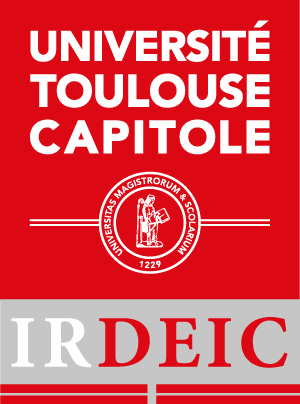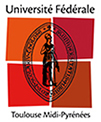The programme is an extension of the conference organised in Toulouse in 2012 by Francis Querol:
‘European reorientation of VAT after the abandonment of the definitive system’, the proceedings of which were published in PUSS in 2014.
The programme focuses on the most recent aspects in the harmonisation of VAT legislation within the European Union.
The legislative study approach is complemented by a study on the role of national courts in their application of the CJEU’s case-law.
Due to the increasing power of the Court of Justice in EU tax harmonisation, the topic has been predominantly studied from a case-law perspective and especially in relation to direct taxes.
The court’s precedents based on the free movement of the internal market have attracted the attention of researchers of direct tax harmonisation which has not seen significant legislative advances since the mid-1990s.
Nevertheless, the court has gradually contributed significant commentary on European texts, in particular on VAT which has remained a benchmark in tax harmonisation.
Firstly, the role of the Court of Justice of the European Union in the harmonisation of basic VAT rules has to be analysed.
This covers the principles (neutrality), the field of application and ancillary texts whose importance continues to increase (combating fraud).
Secondly, the role of national tax courts, within a Union that has constantly enlarged since 1995, requires particular attention because those courts remain the local enforcer of EU law.
Beyond the transposition of VAT laws by national parliaments, the importance of the Court of Justice’s interpretations require a comparative approach to study the role of national courts: how is European case-law used? Under which national legal framework?
What is its scope?
There are many questions that revive an issue that some have thought frozen by the main VAT directives.
Although tax law is a jealously held sovereign law, it has been the subject of a judge-made harmonisation that has given a new look to a Europe of taxes.
All of these elements orientate the research topic particularly to the legal tools available for EU tax law along with a comparative perspective.
Methodology:
This study requires collaboration at various levels
A comparative analysis of the transposition of CJEU case-law.
A multi-layered legal study with contributions from tax experts, financiers and EU law specialists;
A legal and economic analysis of the impacts;
A comparison between researchers and practitioners.
Topics:
The principle of VAT neutrality
The territorial rules of VAT
VAT’s scope of application
Anti-fraud actions
Completion of the study:
The research leads to two stages
The topics of the study are presented by lecturers and practitioners at a conference, with an outlook to continue collaboration.
A publication of the proceedings as well as supplementary contributions that have been requested.
Teams:
The research will be conducted on the basis of collaboration between distinguished research centres in the areas of European law and taxation from three EU countries: this work is conducted by members of the CERFF, the University of Olstyn (Poland) and Spanish universities (Complutense University of Madrid, Autonomous University of Barcelona and University of Vigo).
The use of an inter-team dynamic is prioritised.
This study is conducted under the supervision of S. De Fontaine and F. Querol.
‘European reorientation of VAT after the abandonment of the definitive system’, the proceedings of which were published in PUSS in 2014.
The programme focuses on the most recent aspects in the harmonisation of VAT legislation within the European Union.
The legislative study approach is complemented by a study on the role of national courts in their application of the CJEU’s case-law.
Due to the increasing power of the Court of Justice in EU tax harmonisation, the topic has been predominantly studied from a case-law perspective and especially in relation to direct taxes.
The court’s precedents based on the free movement of the internal market have attracted the attention of researchers of direct tax harmonisation which has not seen significant legislative advances since the mid-1990s.
Nevertheless, the court has gradually contributed significant commentary on European texts, in particular on VAT which has remained a benchmark in tax harmonisation.
Firstly, the role of the Court of Justice of the European Union in the harmonisation of basic VAT rules has to be analysed.
This covers the principles (neutrality), the field of application and ancillary texts whose importance continues to increase (combating fraud).
Secondly, the role of national tax courts, within a Union that has constantly enlarged since 1995, requires particular attention because those courts remain the local enforcer of EU law.
Beyond the transposition of VAT laws by national parliaments, the importance of the Court of Justice’s interpretations require a comparative approach to study the role of national courts: how is European case-law used? Under which national legal framework?
What is its scope?
There are many questions that revive an issue that some have thought frozen by the main VAT directives.
Although tax law is a jealously held sovereign law, it has been the subject of a judge-made harmonisation that has given a new look to a Europe of taxes.
All of these elements orientate the research topic particularly to the legal tools available for EU tax law along with a comparative perspective.
Methodology:
This study requires collaboration at various levels
A comparative analysis of the transposition of CJEU case-law.
A multi-layered legal study with contributions from tax experts, financiers and EU law specialists;
A legal and economic analysis of the impacts;
A comparison between researchers and practitioners.
Topics:
The principle of VAT neutrality
The territorial rules of VAT
VAT’s scope of application
Anti-fraud actions
Completion of the study:
The research leads to two stages
The topics of the study are presented by lecturers and practitioners at a conference, with an outlook to continue collaboration.
A publication of the proceedings as well as supplementary contributions that have been requested.
Teams:
The research will be conducted on the basis of collaboration between distinguished research centres in the areas of European law and taxation from three EU countries: this work is conducted by members of the CERFF, the University of Olstyn (Poland) and Spanish universities (Complutense University of Madrid, Autonomous University of Barcelona and University of Vigo).
The use of an inter-team dynamic is prioritised.
This study is conducted under the supervision of S. De Fontaine and F. Querol.




 Print
Print



